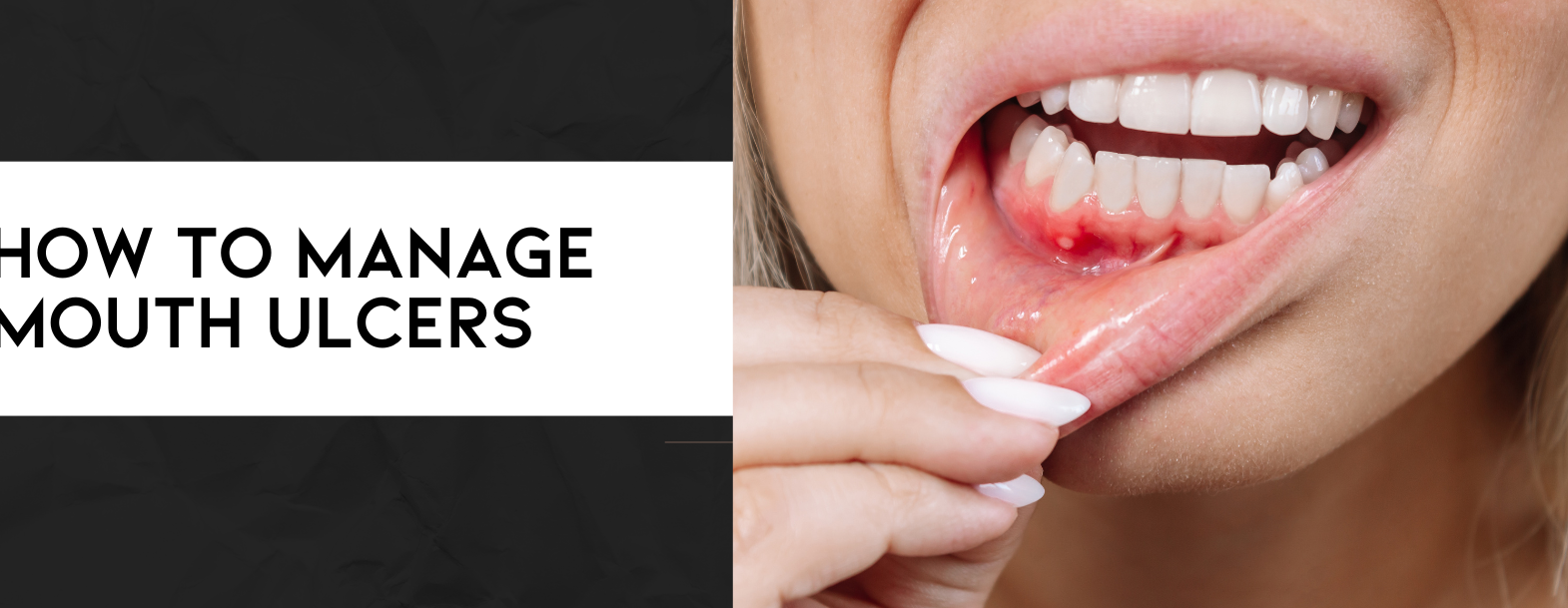We’re committed to providing you with the best information we can, especially in a time where we are all unable to go about our daily lives in the normal fashion. To help, our clinical team have been putting together as much information as possible on dental and oral health for you to access from the comfort of your own home.

Mouth ulcers are sores that form in the mouth and can be very painful. They’re sensitive to the touch and often cause a sharp, stinging pain. More often than not, they are clearly defined – usually oval shaped – and often react to the tiniest facial movements, making eating, talking and even smiling a painful ordeal. But where do they come from, and how do we get rid of them?
Mouth ulcers are common, and while they can sometimes point to an infection, anyone can get them no matter how healthy they are. The exact cause of common recurrent ulcers is difficult to pinpoint, but there are contributing factors that increase the likelihood of getting one:
The good news is that mouth ulcers do heal naturally, but unfortunately, this can take a little bit of time. Sometimes they can last several days. However, there are methods to relieve the pain while you wait and if you follow this guidance, your ulcers will be less of an irritation and after healing, will leave you with a healthy mouth.
Bristles on an ulcer can be very painful so be extra careful when brushing. It’s worth avoiding hard and spicy foods as well. Brush gently around the ulcer as part of your oral hygiene routine to ensure a clean mouth.
If stress is the cause of your mouth ulcer, then adopting a less stressful lifestyle is advisable. You can also learn a few relaxation techniques that can help.
If the ulcer is particularly bad, then medication is available to reduce the pain. Some mouthwashes are specially medicated to treat ulcers. But you should always check that you are not allergic to any of the active ingredients first. A good alternative is to rinse your mouth with warm, salty water. Medicated gels can also be applied to the affected area. These gels will numb the area and provide relief. It will also protect the ulcer.
Rarely an ulcer might be a sign of mouth cancer. If you have an ulcer which is not healing after 2 weeks, then consult your dentist as soon as possible.
Back to Blog